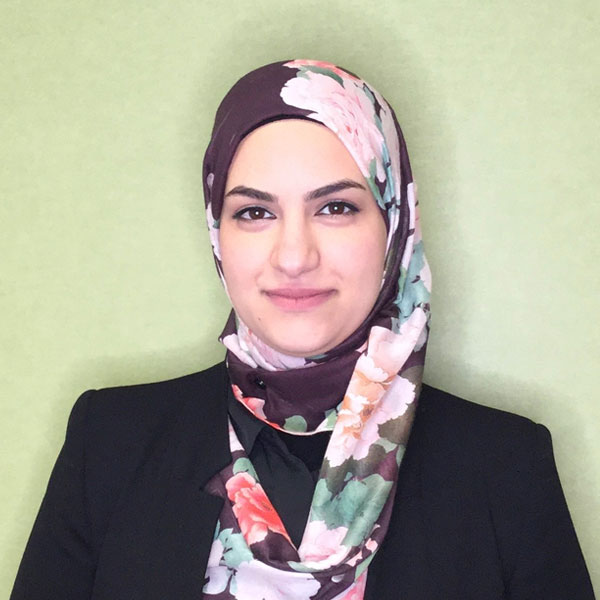Elly Mackay
2 September 2021: Researchers from the University of Canberra had just three minutes to present their research projects at a live presentation tonight, as part of the global Three Minute Thesis (3MT) competition.
Six of the University’s brightest minds qualified for the University’s final, held as a Facebook Live event, and competed for the opportunity to win research funding of up to $4,000.
Presentation topics from competitors included hate speech on social media, how earth-related materials can impact forensic science, talent development in women’s cricket, and the experiences of female academics in Vietnam.
University of Canberra Deputy Vice-Chancellor, Research and Innovation, Professor Leigh Sullivan said the international competition is an opportunity for PhD students to share their research.
“The 3MT competition provides a unique opportunity for our postgraduate research candidates to present their thesis in an innovative and exciting format,” he said.
“This international competition presents our PhD candidates with the considerable challenge of clearly and engagingly explaining their research in language suitable for a general audience, all within the space of three minutes.”
Professor Sullivan also spoke to the importance of sharing and communicating research in order for it to make a greater impact.
“Ultimately, communication of the potential impact of research is the first step towards the translation of that research into meaningful impact for society. Competitions such as 3MT provide our PhD candidates with ideal opportunities to further develop their communication skills by providing training in how to distil the essence of their research into clear and entertaining presentations,” Professor Sullivan said.
The first place prize, worth $4,000, was awarded to Dua'a Ahmad for her research 'Maybe you can judge a face by its cover'.
"Competing in 3MT was a great experience, and winning has really given me a lot of energy to continue on with my research," Ms Ahmad said.
The runner-up and People’s Choice awards went to Alex Lascu and Jane Phuong respectively.
2021 Finalists
Michael Aberle
A little bit of dirt never hurt: Following the soiled footprints of crime
Michael's work primarily addresses the use of earth-related materials, such as soil, for the prediction of geographical source regions in forensic science and broader criminal intelligence applications.
Dua’a Ahmad
Maybe you can judge a face by its cover
What if instead of judging, we really observed, the smallest of the details, even if it’s with the help of the most advanced technologies? Maybe then, we start to truly understand.
Nabeela Asghar
Hate speech on social media and its effects on Pakistani youth
Nabeela is investigating the impact of online hate speech against Shia and Sunni groups on the inter-communication and inter-relationships of Pakistani Shia and Sunni youth through analysing the Shia and Sunni leaders’ online hate speech and the comments. Findings show that the commenters adopted the same language in their comments which was employed in the video. I am further investigating the different factors that are associated with the response mechanism of youth towards hate speech. This study will hopefully inform any subsequent strategies aimed at promoting safer online spaces for users.
Sara Guevara
Talent identification and athlete attrition
Talent identification and athlete attrition literature calls for a complex systems approach to help navigate the high-performance pathway. The high-performance pathway is multi-dimensional with a combination of environmental, psychosocial and physiological factors. Negative factors can test an athlete’s ability to adapt and question their willingness to remain in high performance sport. Most literature has focused on intrapersonal and interpersonal factors in successful senior elite athletes. Limited literature exists investigating environmental or broader societal factors in this population. A complex systems approach has been proposed to investigate the multi-level, contextual and socio-ecological nature of athletes on the high-performance pathway.
Alex Lascu
Talent development in women’s cricket, ground-breaking research into women’s sport
Have you ever been an elite athlete? Most people never will be, but that doesn’t mean they’re not talented. If we look at talent as something that can be learned, we may find it in unexpected places. In this talk, I detail a common early childhood experience, the disadvantages of looking for talent, and a new way to develop talent by making training environments more engaging.
Jane Phuong
Navigating the River: Experiences of female academic leaders in Vietnam
In Navigating the River: the hidden barriers in the water, Jane Phuong talked about her research on the under-representation of female academic leaders in Vietnam. She used the photo elicitation method to learn about the lived experiences of Vietnamese academic leaders and found that her participants conceptualised their leadership journey in the water, the experiences that cannot be captured by the ‘glass ceiling’, ‘sticky floor’ or ‘labyrinth’ metaphors originating in the West. Her research stresses the importance of how language can shape the way people see and make sense of the world.


